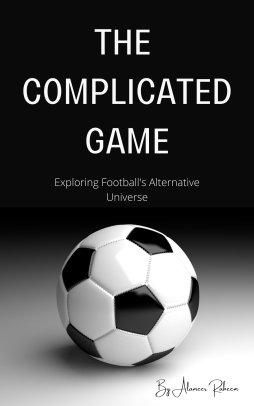How Bayern Munich Destroyed German Football: Before The Berlin Wall Fell
Before we start the post, a quick reminder. This is the third part of this series to explore Bayern Munich's history and its huge advantages in Germany. This comes in an attempt to answer whether German clubs are just unambitious and failures or Bayern Munich is actually a dirty, exploitive club. Is the myth about Bayern Munich destroying German clubs true or not? This question can not be answered without going through the history step by step.
Part 1: Introduction
Part 2: The Ugly Side Of Financial Fair Play

The 1970s and 1980s were relatively smooth sailing for Bayern. This takes us to the 1990s when things weren't so smooth. However, before we get that, we must take a detour of how football was in Germany in the 1990s so we could put in context how Bayern were in the 1990s. And we can't talk about Germany in the 1990s without talking about the fall of the Berlin Wall.
However, we can't talk about what happened after the Berlin Wall collapse without putting in context how life was before.
Before The Berlin Wall Fell
I wasn't expecting this period to be remotely as thrilling as it turned out to be. Obviously, many of you know that post-World War 2, Germany was divided into two halves, East and West. The east was controlled by the Soviet Union, and the communists, while the west was controlled by France, USA, and UK, the capitalists. This meant each part of the country was behaving in the shape of the side controlling it. This was reflected in football.
A very shallow summary would show that there were three main differences that existed between the east and west, thus, in German football as a whole:
1- Collectivism vs Individualism
The communist side believed in collectivism and that individuals need to serve the group. They believed in super physiques and the ability to endure. That's what the east was like. The west of Germany, however, always believed in individual talent is what mattered the most.
2- Economical and Social Differences
The east was poorer than the west. It was also less open to the world and more authoritarian. The people in charge were in control of all activities happening inside the country.
3- How Sport Was Sceen
The communists or the Soviet Union saw sport as a means to reinforce the national identity of the Soviet Union. It was often used to gather people in support of one laid goal and promote the Soviet Union at the international level. Sport was 100% politicized in the east.
The west, however, saw sport as a business and a means to make as much money as possible for investors and advertisers. The east never saw sport as a fun activity, and anyone who broke that mentality was punished immediately.
Perhaps the best way to highlight the difference is through Matthias Sammer. The German had an unusual career as he was born, raised, and played the early part of his career in the east side of Germany. He was the top star and goal-scorer of his club at the time, Dynamo Dresden.
After the Berlin Wall collapsed, he moved to the clubs in the west, including Borussia Dortmund. After his retirement, he became the Sporting Director of Bayern Munich and remained as such until the arrival of Hasan Salihamidžić.
Anyway, Sammer talked about how when he was still playing in the east, every time they'd perform well over a long period they'd get rewarded with new boots. One day, the club received the new boots but Sammer's boots were three sizes bigger. That was a punishment for Sammar for his playstyle which highlighted his individualism.
No one was allowed to behave against the Soviet Union's view of sport as a collectivist activity, not Sammer, not anyone else. The German Gymnastics and Sports Federation, east Germany's sporting ministry, had its head, Manfred Ewald, say this publicly
The goal of sports isn't personal enjoyment. The goal of sports is social, national and educational.
Based on that, the eastern side saw it would be better for it to focus on sports that would allow it to be better and win, which in turn meant better propaganda and advertisement for itself in the process. From there, it started to depend on the long history of the individual sport when facing the west. That's why there was extra focus put on sports like Swimming, rowing, or any other similar sports that had priority.
Politicizing Sport
One time, a journalist asked the coach of east Germany's national team why they didn't have a tall player. The coach replied that all the tall athletes were in the rowing team. There was no room for mood or personal preference in the east. In his book, Soccer and the failure of East German sports policy, Sheldon Anderson says that when the separation occurred between the two sides of Germany, no one but the Soviet Union allies recognized east Germany's football team.
The Soviets didn't have the luxury of having sports existing for fun. The priority was politicizing sports and winning as many medals and trophies to show their way of playing was better than the rest and thus getting the recognition they seek. This would mean that their style and ideas are the superior way of handling sports. And that's what happened.
Athletes at a young age were deterred away from football and into other sports, sports where the communist side in general excelled.
The west, however, saw sport as a business and a means to make as much money as possible for investors and advertisers.
Hey this is such a cool serious. Enjoy seeing names like Sammer, who I grew up idolizing having had a German grandfather
East Germany sounds like they were a bunch of boring assholes that were probably racist.